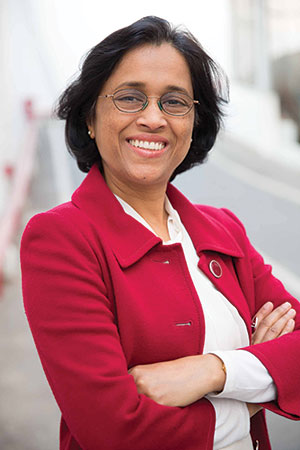Quality education: New definition
Today education has to prepare young citizens to address contemporary health and climate change challenges and harness new technologies, writes Prof. Geeta Kingdon

As India’s education system from pre-primary to university begins to find its bearings after the longest lockdown of education institutions worldwide, it’s important to devise ways and means to rejig the system for the post-Covid pandemic era. In addition to legacy problems of the past, education systems worldwide are confronted with daunting new challenges.
• Climate change that presents humanity with frightening scenarios
• Global pandemics undermining health security
• Evolving technologies that are rapidly changing the nature of work, and to which humans are (perhaps unwittingly) ceding agency and autonomy.
The plain truth is that our education system is woefully unprepared to confront these formidable challenges.
Against this background, it’s a tragedy that in the third decade of the 21st century, access to acceptable quality education is still denied to a massive number of children in India. Even the modest Millennium Development Goal which mandated that all elementary-age children will complete eight years of education by 2015, was missed by a mile. Moreover, even among children who do complete elementary education, millions don’t have adequate reading, writing and numeracy skills.
However, in this day and age every child being literate and numerate after five-eight years of schooling is still a very limited concept of what education can and must do. Today, education has to be far broader in reach and scope to prepare young citizens to address contemporary health and climate change challenges, and to harness opportunities inherent in emerging new technologies while circumventing their downsides. In sum, education needs to be redefined so that it enables new millennium children to develop new skills and capabilities. In this context, what type of education do we need?
Foremost, redefinition of education to free it from its largely economic context and acknowledge its transformational role in individual lives and society. Latter day prophet Abdul Baha whose death centenary we commemorate this year, wrote: “True education releases capacities, develops analytical abilities, confidence in oneself, will-power and goal-setting competencies, and instils vision that will enable a person to become a self-motivated agent of social transformation.”
Human beings essentially have three qualities: material, human and divine. For a child’s balanced development, education must develop all these qualities. Arguably, during the past decades there has been overemphasis on material at the cost of human and spiritual education. To improve outward behaviour, inner condition must be improved first. This highlights the importance of values based education.
One valuable tenet of India’s ancient culture with perennial relevance and utterly necessary today is vasudhaiv kutumbkam — the whole world is one family, a cultural tradition often emphasised by prime minister Modi. The attributes needed for accepting the whole world as one family are: empathy, care, compassion, justice, inclusivity, lack of prejudice and respect for diversity.
That India’s ancient value of vasudhaiv kutumbkam is appropriate for the contemporary globalised world is endorsed by the UN’s Sustainable Development Goals (SDGs, which were adopted by all world leaders at the UN in 2015). They include ‘Global Citizenship Education’ as one of the indicators within the Education Goal (Goal 4). By recommending that all schools worldwide impart global citizenship education, the SDGs seek to cultivate the values of empathy; equality (gender and economic); care for the natural environment; appreciation of and respect for diversity; and lack of prejudices of colour, race and nationality.
In this context, it is encouraging that India’s National Education Policy (NEP) 2020 highlights Global Citizenship Education (GCE) in three paragraphs — 4.24, 6.20 and 11.8. By insisting that schools teach GCE, NEP 2020 endorses the importance of inclusivity inherent in the vasudhaiv kutumbkam precept. This means that school curricula, teacher training and pupil assessments of the future must include GCE.
At the recently concluded COP-26 conference in Glasgow, in a session ‘Schools Teaching for Climate Action,’ every distinguished speaker emphasised that to address climate change effectively, educating children about this phenomenon and raising awareness is not enough. Attitudinal and behaviour change is also required.
In sum, good education must not only provide knowledge and skills but also inculcate values and attitudes that enable individuals to become conscious promoters of their own growth, and evolve into responsible participants for the progress of society. An individual with such rounded education won’t be a passive bystander but a pro-active citizen, concerned about affairs of the age, and contributing her share towards resolution of problems confronting the community and humanity.
Education based on such principles is capable of playing a transformative role in individual lives and in societal progress and reorganisation. This needs to be the new definition of ‘quality education’ today.
(Prof. Geeta Kingdon is chair of Education Economics & International Development at the Institute of Education, University College London)
Also Read:Can this man revive India’s shattered education system?
















Add comment